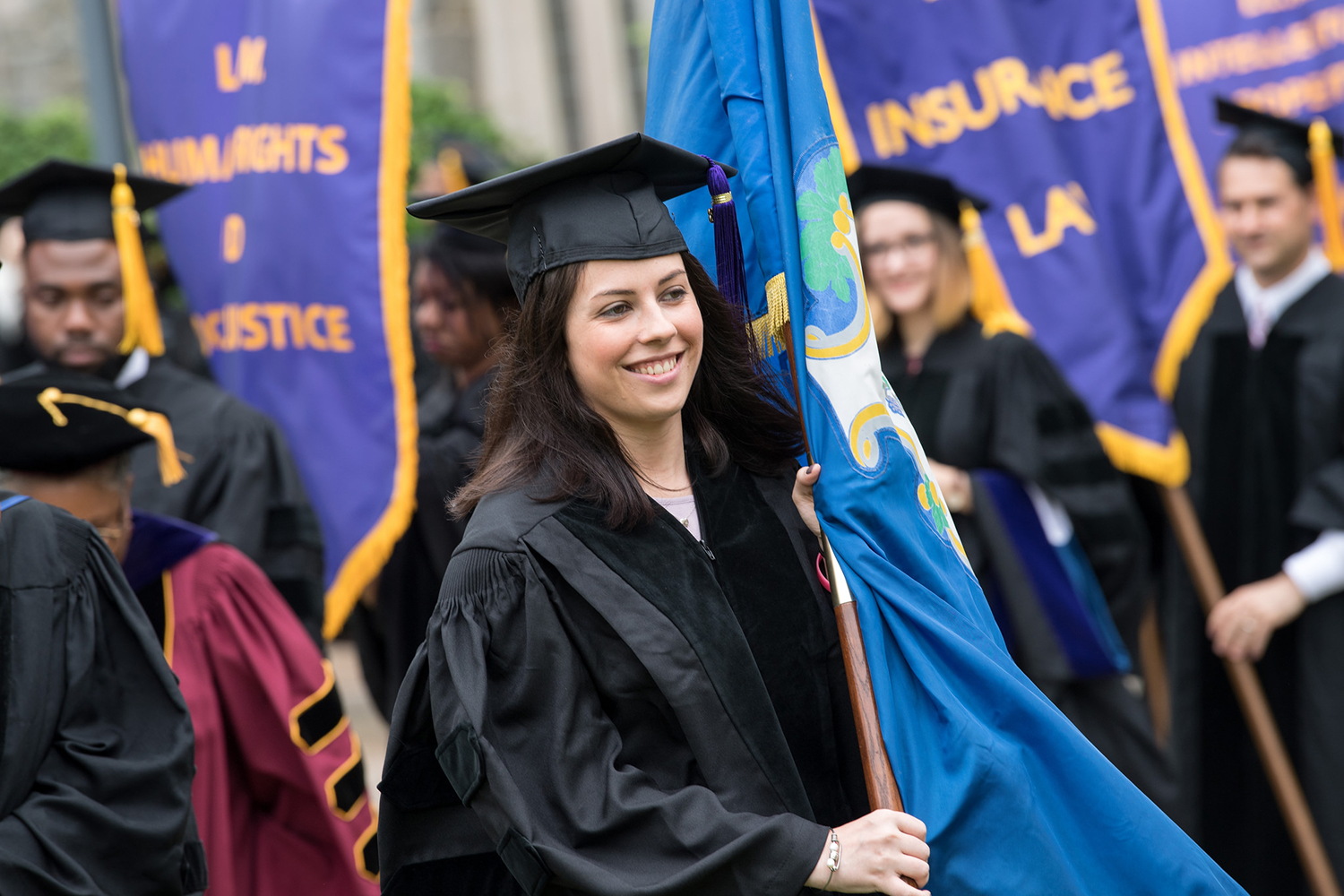Judge Cornelia T. L. Pillard, delivering the keynote address at the 95th commencement of UConn School of Law, urged graduates to be open to compromise.
“In the face of everything that divides us, our job as lawyers, as human beings, is to work conscientiously to help people figure out, with all our differences, how to move forward together,” said Pillard, who serves on the United States Court of Appeals for the District of Columbia.
The Class of 2018 is already on its way to fulfilling that aspiration. Although the bar exam still lies ahead, by graduation 75 percent had already found employment.
The ceremony on May 20, 2018, included speeches by graduates chosen by their classmates: re Marianne Elsholf for the LLM graduates, Ruth Fortune for the JD Evening Division and Andrew Mark Ammirati for the JD Day Division.
Paul Chill, associate dean for clinical and experiential education, served as chief marshal for the ceremony and was chosen by the graduates to receive the Perry Zirkel ’76 Distinguished Teaching Award.
As speakers celebrated the accomplishments of the graduates and acknowledged the support of their families, several noted the unsettled time at which the graduates are joining the legal profession.
“The system that you have been trained to support is under assault itself like never before,” Dean Timothy Fisher said. “There are powerful voices assailing the independence of the judiciary.”
He encouraged graduates to seek common ground. “You serve as an example to our entire country on how opposing perspectives do not advance by denigrating each other,” Fisher said, urging the graduates to concentrate on “working together to explore and find the truth.”
Pillard warned against obstinacy, and advised students to look for multiple answers, rather than quickly settling on one solution. She said lawyers must work to avoid speaking over other people’s voices.
“When you speak as a lawyer you have power,” Pillard said. “Use it well.”
More Commencement Coverage
- Browse hundreds of 2018 commencement photos on Flickr.
- Watch graduates thank their families and friends on YouTube.
- See the list of recipients of the 2018 Student Awards.
- Read the university’s 2018 Commencement Program, which lists the JD and LLM graduates.



